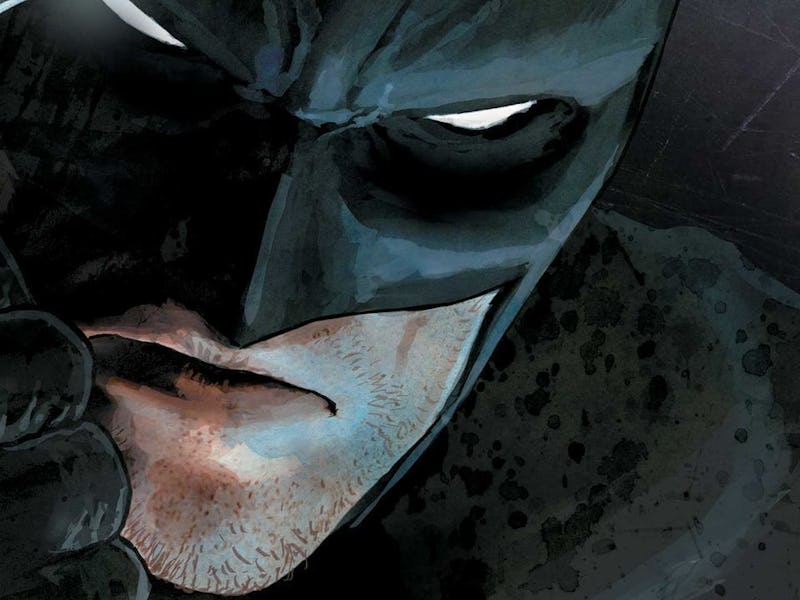In 2016, Superheroes Were Just as Depressed as You Were
It was a tough year for everyone.

2016 was a difficult year for many of us. When we turned to works of escapist pop culture, most Americans were greeted by — surprise! — more depression. By design or perhaps by cruel coincidence, the superheroes of 2016 were just as miserable and sad as the rest of us, signaling a rare moment of synchronicity within a period of jarring disconnect.
Some of the best comics of the year featured broken superheroes who were forced to confront the same existential crises superheroes have somehow always seemed to face, but with a renewed brutality that often pit them against themselves. From Batman to Black Widow, our heroes were put through the wringer this year, mirroring our own inner conflicts, which felt particularly on edge this year thanks to political stress, health scares, and the overall feeling that this world is teetering on a very dangerous precipice.
An obvious candidate for superhero who felt 2016 hardest, for lack of a better term, is Jason Aaron’s Unworthy Thor. Having written the Norse God for several years now, Aaron is currently following the God of Thunder in one of his darkest moments, having lost his hammer, title, and his arm. Reading the Unworthy Thor drink and fight his way through his self-loathing seems almost too relatable for many of us.
Author Tom King managed to deliver not one, but two stories centered around the desperate struggle of life. One was the fantastic Vision for Marvel, which explored the life of the Marvel Universe’s most interesting A.I./Android that over the course of 12 issues became more human the more it lost control of his perfectly manicured human suit, becoming a perfect allegory for the human identity only after examining it from the perspective of a family of non-humans.
Another King story this year was his take on a Rebirthed Batman for DC Comics. This take on the caped crusader finally answers the age-old question, “Is Batman self-aware?” and discovers that the answer is “Yes, painfully so.” King told Inverse that the decision to reveal a young Bruce Wayne as someone who cut himself as a child might be a new revelation, but that it’s one perfectly in-line with the character. King’s Batman only confirms the depression and self-loathing touched upon by previous incarnations of the character, but never made so painfully explicit.
In a funnier set of stories, one of the better representations of living with a mental health crisis was Chelsea Cain’s Mockingbird, which presented a heroine dealing with some serious repressed feelings probably brought on by the unfairness of the world at large, as well as some internal pressures as manifested by her childhood.
While plenty of comics this year tackled relevant political and social issues plaguing our world, the best stories were and are typically about the characters, and 2016 was a strong year for sad heroes who had to deal with their self-loathing, crippling doubt, or otherwise general existential meltdowns. Even new heroes that debuted like DC’s new Green Lanterns, Simon Baz and Jessica Cruz, came pre-loaded with their own baggage, with Baz’s Muslim identity causing social strife and Cruz’s years as a shut-in also impacting her arc.
It’s strange reading these stories in light of the overall narrative of 2016, and there’s a good chance that as readers, we might be projecting our own struggles onto these colored pages. But at this point, it’s not only difficult to separate the year of 2016 from a unified narrative of fear and depression, but almost be wrong to do so. In a way, reading these stories now might better prepare us for the future, and in times of sadness, there’s a comfort in reading stories that echo our own sentiments. It might help to relate to something, even sad stories, when everything else is too real to handle. The only thing to do afterwards is to remember to move on as well.